| Title | Operant conditioning of rat H-reflex: effects on mean latency and duration. |
| Publication Type | Journal Article |
| Year of Publication | 2001 |
| Authors | Wolpaw, J, Chen, XY |
| Journal | Experimental brain research. Experimentelle Hirnforschung. Expérimentation cérébrale |
| Volume | 136 |
| Pagination | 274–279 |
| Date Published | 01/2001 |
| ISSN | 0014-4819 |
| Keywords | conditioning, H-Reflex, Memory, plasticity, Spinal Cord |
| Abstract | We are currently studying the mechanisms of operantly conditioned changes in the H-reflex in the rat. Primate data suggest that H-reflex decrease is due to a positive shift in motoneuron firing threshold and a small decrease in the monosynaptic excitatory postsynaptic potential (EPSP), and that increase might be due to change in group-I oligosynaptic (especially disynaptic) input. To further evaluate the possibility of conditioned change in oligosynaptic input, we compared the mean latency (i.e., the average latency of the entire H-reflex) and the duration of control (i.e., pre-conditioning) H-reflexes with those of H-reflexes after up-conditioning or down-conditioning. Up-conditioning was associated with small, statistically significant increases in H-reflex mean latency [+0.11+/-0.05 (+/-SE) ms] and duration (+0.32+/-0.16 ms). The mean latency of the H-reflex increase (i.e., the part added to the H-reflex by up-conditioning) was 0.28+/-0.14 (+/-SE) ms greater than that of the control H-reflex. Down-conditioning had no significant effect on mean latency or duration. While these results indicate that operant conditioning does not greatly change H-reflex mean latency or duration, the effects detected with up-conditioning are consistent with the hypothesis that decreased inhibition, or increased excitation, by homonymous and heteronymous group-I oligosynaptic input contributes to the H-reflex increase produced by up-conditioning. Several other mechanisms might also account for these small effects. |
| URL | http://www.ncbi.nlm.nih.gov/pubmed/11206291 |
| DOI | 10.1007/s002210000609 |

